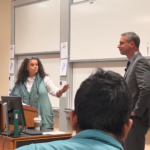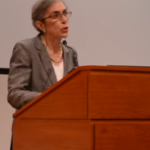College Radiates Intolerance
Radiation therapy can be dangerous to patients — and sometimes, to students. Brandon Jenkins found that out the hard way when he applied to a radiation therapy program at the Community College of Baltimore County. Despite solid grades, the director of the department took issue with Brandon’s faith, suggesting that it was a disqualifying factor in his application.
“I understand that religion is a major part of your life,” Adrienne Dougherty emailed, “and that was evident in your recommendation letters, however, this field is not the place for religion. We have so many patients who come to us for treatment from many different religions and some who believe in nothing at all.” For Brandon, who hadn’t really mentioned his Christianity, it was stunning. The only time the issue even surfaced was when he was asked what the most important thing was to him. He replied, “My God.”
Looking back, Brandon wonders if those two words cost him a spot in the college’s program. It certainly seemed so when Dougherty closed her email with this bit of unsolicited advice: “If you interview in the future, you may want to leave your thoughts and beliefs out of the interview process.” David French, Brandon’s attorney with the American Center for Law and Justice, said that what shocked him most was how open the College was about its intolerance. “While colleges routinely discriminate against Christians, rarely do they state their discrimination so explicitly.”
As far as most experts are concerned, Brandon has a slam-dunk discrimination case if it ever gets to court. Essentially, the College is saying that when it comes to the radiation field, Christians need not apply. Unfortunately, we’re seeing this effort to quarantine faith bleed over to into every profession — from the military to academic and even sports. And a lot of it can be traced to the Obama administration’s climate of religious hostility, which is so deeply engrained that liberals aren’t even hiding their agenda anymore.
Like Dougherty, they’re shockingly candid about their prejudices toward faith and the priority they place on snuffing it out. That kind of brazen attack on faith would have stunned the founding fathers, who viewed religion — and specifically Christianity — as the guiding light informing every aspect of our life. As far as they were concerned, it was more than permissible to embrace faith — it was necessary for a successful republic. This kind of religious oppression has no place in America, particularly at a public institution like Baltimore College, fueled by taxpayer dollars.
Tony Perkins heads the Family Research Council. This article is excerpted from the Washington Update that he compiles for the FRC.
If you would like to comment on this article, e-mail contact@academia.org.





